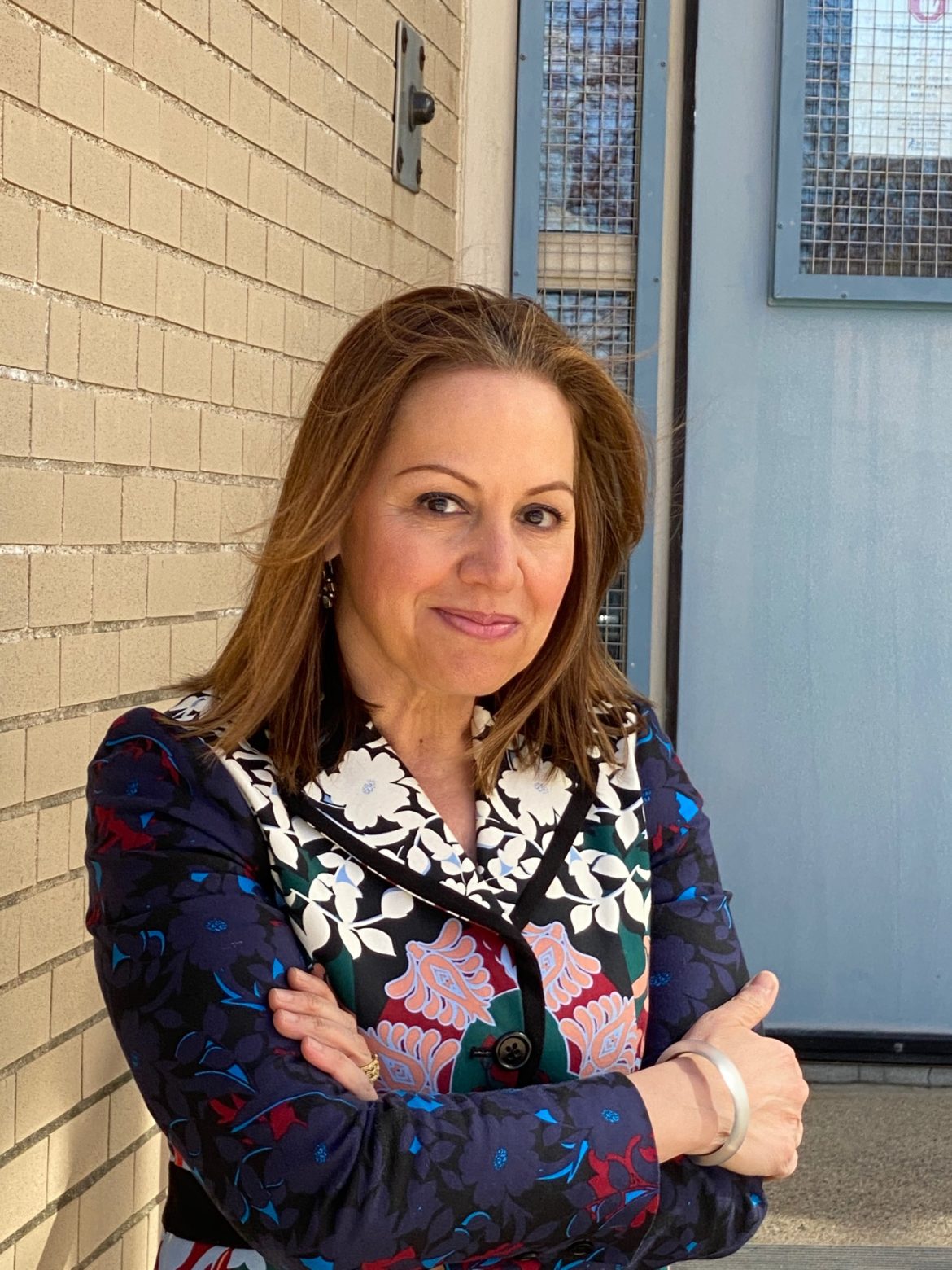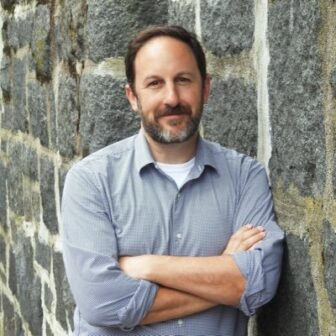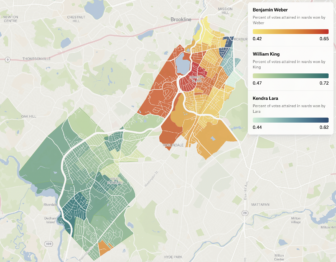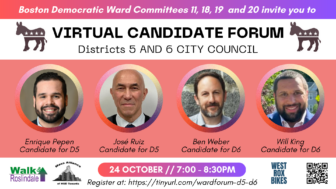There are three candidates for the Boston City Council District 6 seat being vacated. Winnie Eke, Kendra Hicks, and Mary Tamer fielded the same questions via email from Jamaica Plain News.
September 14th is the preliminary election. Residents can register to vote up to 8 pm on August 25th. Click here to register to vote.
Q: What is your opinion on the recent exam school reforms?
Eke: I am happy to see that the team tried to improve the inequity in the system. However, I see the reform as temporary. I am focused on teaching and challenging all learners from elementary school before they get to middle and high schools.
Hicks: As elected officials, I believe we should be concerned with ensuring that all students, regardless of race and class, have access to the high-quality education that a city like Boston can provide. After months of hard work and a year of tremendous sacrifices from the BPS community, we were asked to meet this moment with the urgency and thoughtfulness it deserves. In just a year, we’ve seen admissions for students with disabilities, like my son Zaire, increased from 2 percent to 5 percent, and admissions for students learning English, like I was at that age, grew from 1 to 8 percent. This is why I support the recommendation and unanimous vote made by the selective admissions task force and the school committee to permanently change the admissions process for the three exam schools to 100% allocation by tiers.

Tamer: I attended a Boston Latin School that was far more diverse than what exists today, and I and my classmates greatly benefitted from attending a school that was racially, ethnically, and linguistically diverse, reflecting students from every neighborhood across the city. It is impossible to know, however, if the recent changes to the exam school policy will achieve these goals since no simulations on potential outcomes or school-by-school impacts were released prior to the School Committee’s vote.
My greatest frustration with the recent focus on three exam schools was that it completely failed to acknowledge the fact that the majority of high school students in BPS do not attend exam schools. Too many of these non-exam schools are struggling to attract or retain students, or to graduate students who meet MassCore standards. And less than half of the city’s high schools have NEASC accreditation, which indicates they meet set national standards for curriculum, teaching, and facilities. If we are serious about closing the opportunity divide, we must address these issues with a far greater sense of urgency while acknowledging that equity and quality should be goals for all Boston Public Schools, not just three of them.
Q: Who are you voting for mayor and why?
Eke: Right now, I like the policy stand and actions that [Acting] Mayor [Kim] Janey has taken. She is direct in her responses and means what she says. I like her record of advocacy on social justice issues, and principled stand on issues. Examples include her stand on Boston police chief and equity in city contracts.
Hicks: I think we have a fantastic problem here in Boston this cycle; there’s an abundance of talented women running to represent us, making a choice difficult for all of us, including myself.
Tamer: I am completely and fully occupied by my own campaign right now, and it leaves little time for me to focus on anything else. I am excited by the strong field of candidates and look forward to casting my vote for Boston’s first woman mayor and mayor of color.
Q: If we add more infrastructure for bicycles, such as bike lanes, will we lose more infrastructure for vehicles such as driving lanes and parking? How would you solve this problem?
Eke: There are many voices and opinions on this issue. I think I will go with data derived from questionnaire from all residents, especially those in the areas affected.

Hicks: Yes, we would be losing infrastructure for vehicles on some levels, and I think that’s the point. We have built our cities and neighborhoods to prioritize cars and parking, everything down to parking minimums on housing, and it’s proved to be both dangerous and deadly for pedestrians, cyclists, and people using mobility devices. Marilyn Wentworth’s death and her family’s advocacy amid their grief speak to the importance of finding a way to implement safety improvements. I was asked, and I am interested in helping facilitate a discussion to resolve the concerns about the loss of parking for local businesses and the impact on the abutting neighbors. The city’s plan was sound, and it balanced the business community’s needs, abutting neighbors, and prioritized safety. Unfortunately, the narrative that has been put to the forefront has been that these changes prioritize cyclists’ needs, making it challenging to work towards the common ground that I believe exists.
Tamer: Through the course of this campaign, it has become abundantly clear that our city is in dire need of greater planning and predictability when it comes to development and infrastructure. In fact, Boston has not had a “master plan” since 1965, so every project that comes forward is faced with innumerable building code violations requiring action from the Zoning Board of Appeals. I would urge the council to address updating our 56-year-old codes and advocate that BPDA embark on a neighborhood-by-neighborhood audit, identifying transit-oriented spaces and underutilized buildings that could be developed for housing, community centers, or senior centers. At the same time, we need to evaluate which streets need traffic calming measures and which can be better utilized by increasing biking infrastructure as well as outdoor gathering spaces. COVID has forced us to rethink our use of outdoor spaces, sharing our streets, and using public transportation in the midst of a health crisis. Until we are better able to address what keeps the MBTA from functioning with far greater reliability and efficiency, and until we can safely gather among larger groups of people in the midst of a pandemic, it will continue to be a challenge to get the majority of Bostonians away from cars. We need to urge the state to do far better on MBTA performance, and we need to involve every neighborhood community in reimagining what we want our streets to look like moving forward.
Q: How much does identity politics play into your campaign as a candidate?
Eke: Not much. I am who I am. I keep an open mind as I speak and reach out to people. I hope that persons listening to me would also keep an open mind despite who I am. When some do not, I politely thank them for speaking and engaging with me.
Hicks: Identity, in many ways, is central in my campaign; the personal and professional experience I bring as a first-gen American Black woman gives me a unique vantage point into the issues in the city, and also, identity isn’t everything. We need to elect people into office who have personal experience and have a clear progressive vision and a plan to make that vision a reality and improve the lives of everyone in the district and the city. I believe I am a candidate that brings both these things, and I am excited for the opportunity to be the first person of color and the first Black woman to represent District Six.
Tamer: I’m proud to have been raised in an immigrant family and to have been shaped by the experiences of living in a multigenerational home with my grandparents and my great aunt. My Lebanese and Syrian heritage will always be an integral part of who I am. As someone who has felt like an outsider at different points in my own formative years, I truly understand the importance of inclusion and will work to ensure that every resident of District 6 (and Boston) is part of the political process and has a voice in how the city operates. My campaign is and my city council office will be focused on bringing people together to make collective, positive, impactful changes for our neighborhoods.
Q: What does “police reform” mean to you?

Eke: To me “police reform” means reimagining new ways of policing. For instance, establishing and funding behavioral health and family non-emergency section, supported by police officers. “Police reform” also means having a civilian review board for police accountability and transparency.
Hicks: The conversation about police reform is often centered on what we’re divesting from; I want us to think about what, and specifically who, we’re investing in, schools, youth programming, affordable housing, and ultimately our families and our children. When asked, most people will agree that government agencies that receive public funding should have independent, robust oversight to ensure that our tax dollars are being spent responsibly. The ongoing reporting of fraud and overtime abuse in the Boston Police Department makes reevaluating that budget item a fiscal responsibility for the mayor’s office and the city council. This is not a moral statement on policing but rather one of fiscal responsibility. With that said, one of my top priorities for District 6 is investing in community safety, and safety comes from deeply resourced communities. As your city councilor, I will ensure our collective well-being and safety by addressing root causes, focusing authentically and in-depth on healthy youth development, and implementing community-based violence prevention and intervention strategies. My experience as a street worker in Boston has given me first-hand knowledge of how alternatives to policing more effectively reduce violence. Boston is a wealthy city, and in a wealthy city, we can prioritize our spending in ways that lift our residents and help ensure everyone can thrive.
Tamer: “Police reform” brings several things to mind, including reimagining the role of policing with a strong focus on accountability and leadership, with both being critical to any and all efforts for change. I believe in justice and safety and investing in community-based models that are proven effective. To that end, I’m learning more about the JP Hub model, a program that was started in Canada but is being used by Mass Housing to help coordinate services to those in need or at risk. And as we await the reforms passed by the city council last year to come fully to fruition, I would also advocate for changes to how emergency 911 calls are handled, with dispatchers trained to assess the type of emergency being reported so they can serve as a triage unit, able to put forth the best response – and the most appropriate response team – based on situation and need. As a city councilor, I will push to focus more fully on interventional strategies and also prioritize increasing community safety through a number of policy reforms, including more summer jobs funding for teens and expanding support for domestic violence prevention and response programs. I will also work with the relevant agencies to ensure vigorous enforcement of the new federal hate crimes law that President Biden signed into law on May 20.
Q: What else would you want voters to know about you?
Eke: I am a hard worker, a good listener, and a compassionate person. I say what I mean. My goal is to serve and protect the interest of people of the district, especially the elderly and disabled.
Hicks: When I decided to challenge a 10-year incumbent, I did it because I knew that this moment called for courageous leadership willing to stand up to the status quo. I am the only candidate in this race that has shown that level of courage and commitment, and if I am elected as your city councilor, I take our collective vision for a more equitable district six as a mandate.
Tamer: Public service has been, and will continue to be, a tremendous part of my life, and I do this work with the lens of a mother, an educational advocate and policy maker, and as an Arab American woman. I embarked on this campaign in December because I know Boston is facing significant challenges, and it is more important than ever to have experienced leaders who deeply understand the issues and will not shy away from addressing so many of our long-standing problems. From our school system’s declining enrollment to public health crises to the scarcity of affordable housing, we all need to select our city’s next set of leaders with an eye toward who is best prepared to work across neighborhoods and existing divides to dive into these issues on day one. I know that I’m ready for the challenge of this work and it’s my goal to share this message broadly with the voters in District 6.
Some things that you might not know about me: I’ve written children’s books, I’m told I make the best hummus in District 6, and I likely have thousands of photos (taken over the last 10 years) of my beloved rescue dog Bruiser on my iPhone.




